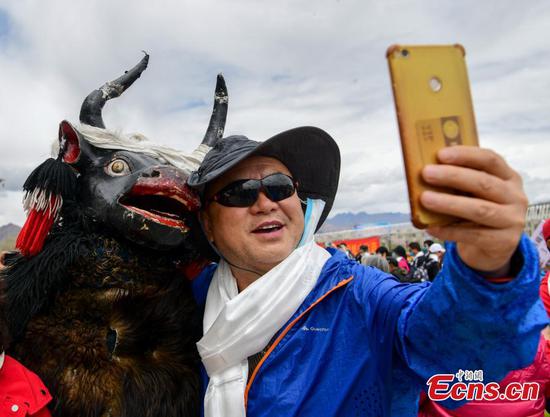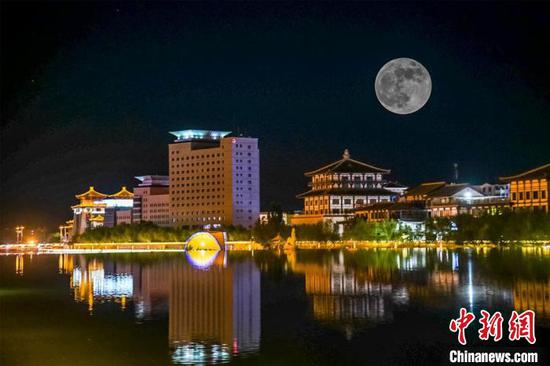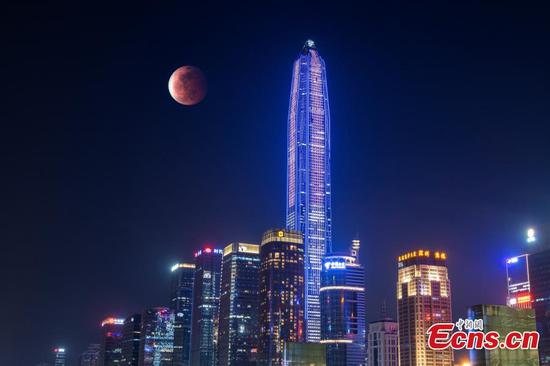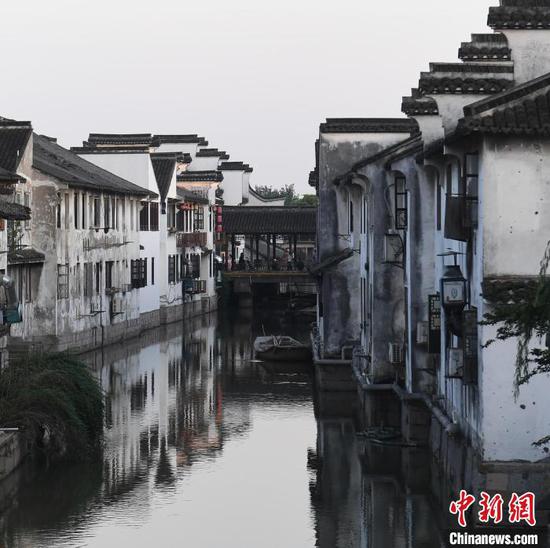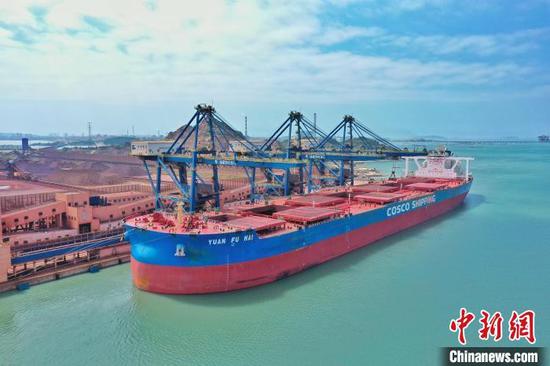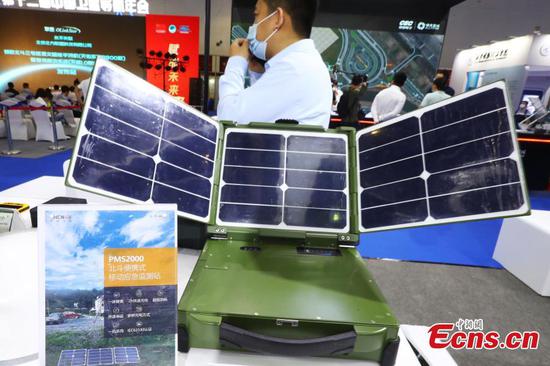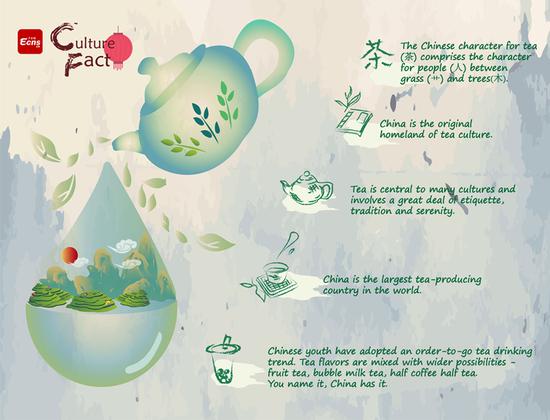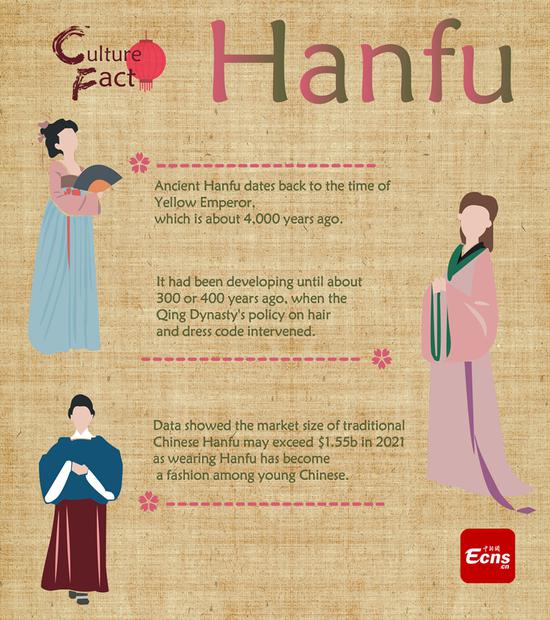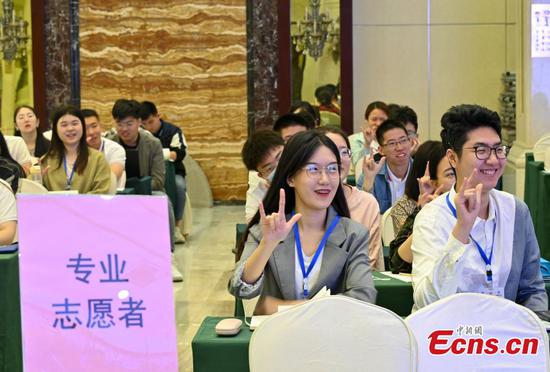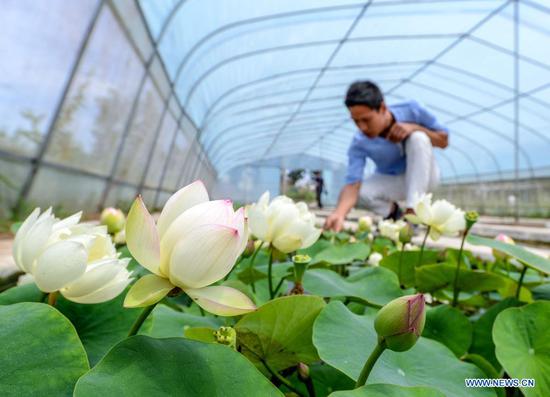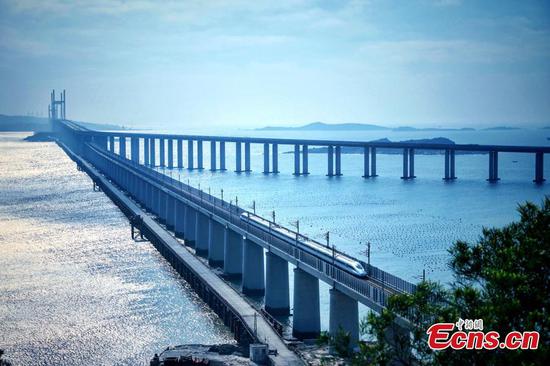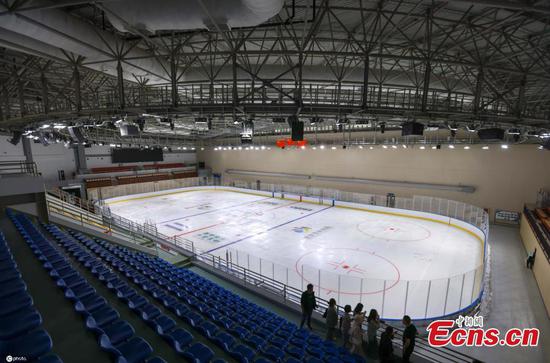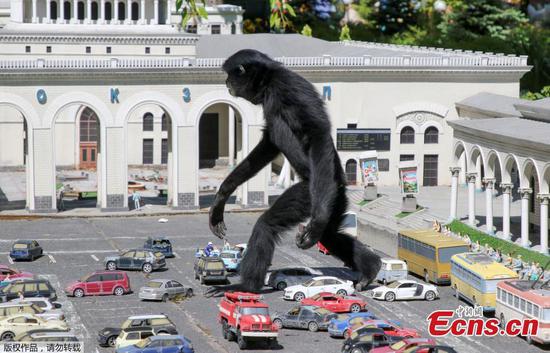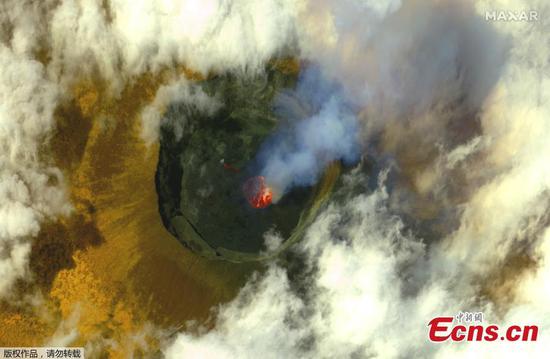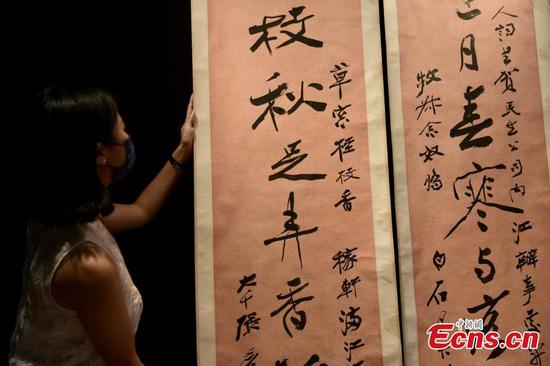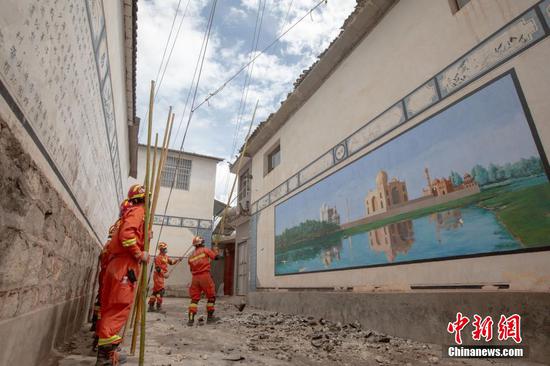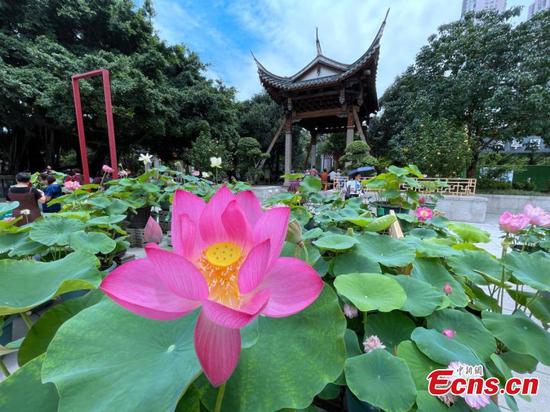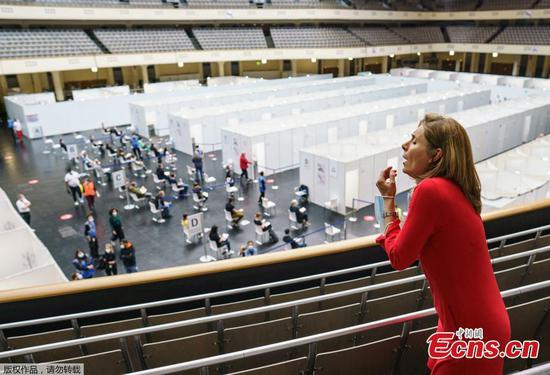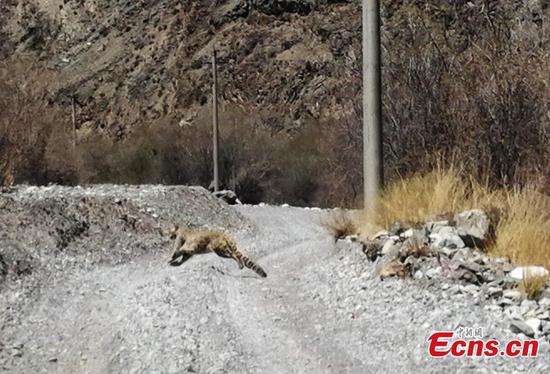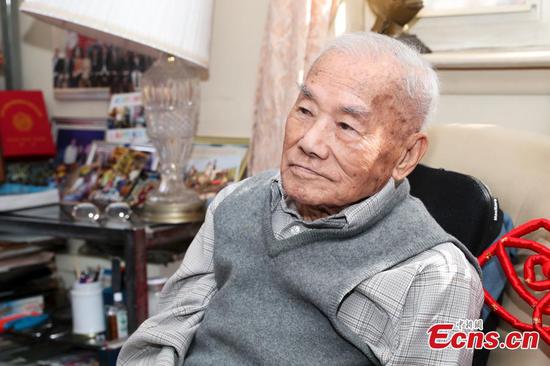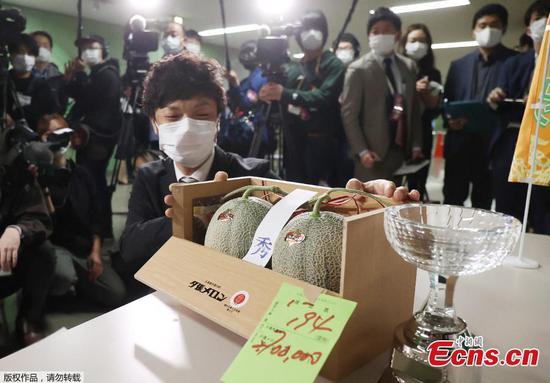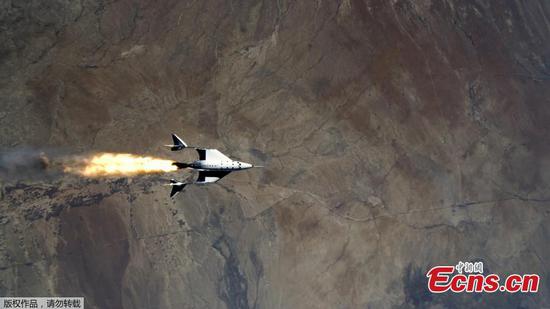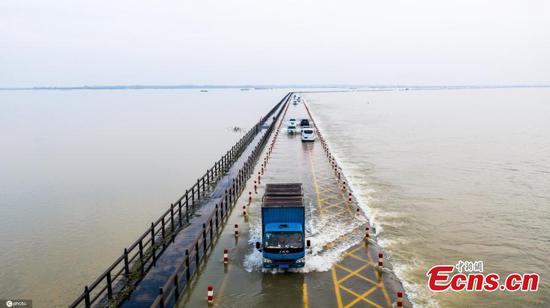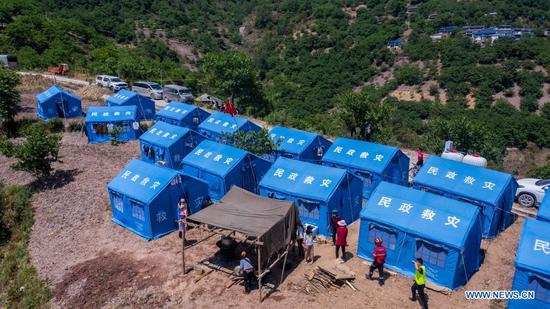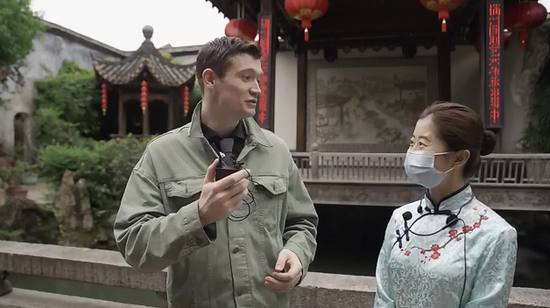
Aerial photo taken on Aug 19, 2020 shows wind turbines in Jiucaiping scenic spot in Southwest China's Guizhou province. (Photo/Xinhua)
Judicial participants at an international meeting have called for increased use of information technology in handling environment-related cases to promote ecological and environmental governance.
They made the call in a declaration issued on Thursday at the World Judicial Conference on Environment, which was jointly held by the Supreme People's Court, China's top court, and the United Nations Environment Programme, in Kunming, capital of Yunnan province.
With the theme "Role of the Judiciary in Advancing Ecological Civilization: Building a Shared Future for All Life on Earth", the conference attracted more than 160 representatives, including judges and diplomats from 27 countries and international organizations.
After sharing ideas on several hot environmental topics, the attendees urged the application of more information technologies, such as artificial intelligence, big data and blockchain, in preventing and solving environment-related disputes to make handling such cases more convenient, efficient and transparent.
While pledging a stronger judicial response to environmental crises, including climate change, biodiversity conservation and pollution control, the participants also agreed to use diversified judicial measures, such as those related to prevention, restoration and public interest litigation, to contribute to ecological and environmental governance, according to the declaration.
Saying rule of law has an irreplaceable and crucial role in global environmental governance, they plan to improve the professionalism of environmental justice by strengthening judicial training concerning the environment, and enhancing transnational judicial internships and the cultivation of judges, it said.
International exchanges, mutual visits, learning and sharing as well as cooperation on the environment among judicial workers across the world are also indispensable in building a community of all life on earth, it added.
On Wednesday, when the conference opened, President Xi Jinping said in a congratulatory letter that China would like to join hands and work with every nation and international organization to build a beautiful home with harmony between people and nature.
Xi, who is also general secretary of the Communist Party of China Central Committee and chairman of the Central Military Commission, noted the country has continued to deepen judicial reforms and innovations in environment protection and has accumulated useful experience in judicial protection in the area.
Lauding China's determination and legislative, administrative and judicial measures in environment protection, Ambeng Kandakasi, Papua New Guinea's deputy chief justice, expressed interest in China's judicial practices in conserving biodiversity and protecting the environment along the Yangtze River and in other areas.
Christina Voigt, a law professor at the University of Oslo, Norway, said she has been impressed by what Chinese judges have done for environmental protection, noting that their use of rule of law in the restoration of and compensation for environmental damage was something other countries could learn from.
Voigt, also chairwoman of the Climate Change Specialist Group of the International Union for Conservation of Nature's World Commission on Environmental Law, expressed her desire to have more global exchanges, adding that sharing data on environmental justice is significant and helpful.










